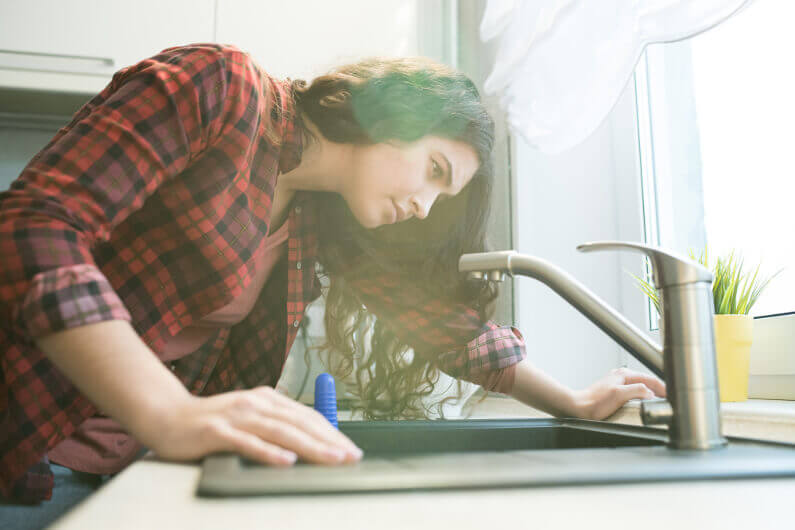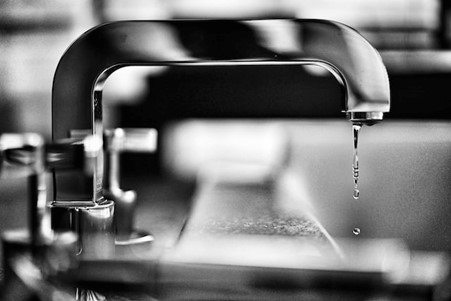Crucial Tips for Managing Plumbing in Older Homes
Crucial Tips for Managing Plumbing in Older Homes
Blog Article
This post in the next paragraphs about Common Plumbing Challenges In Old Buildings is absolutely entertaining. Read it for your own benefit and see what you think of it.

Older homes frequently feature appeal, character, and background, but they can additionally bring a host of pipes concerns. Whether you're managing aging pipes, low water stress, or leaks, understanding how to address these usual problems is crucial to keeping a secure and useful home. In this overview, we'll explore the typical plumbing challenges encountered by older homes and offer sensible solutions to keep your pipes in top form.
Understanding Typical Plumbing Problems
Aging Pipelines
Among one of the most usual problems in older homes is maturing pipelines. Depending on the age in which your home was built, the pipes could be made from materials that have actually deteriorated in time, such as galvanized steel, cast iron, or perhaps lead. These products can rust, come to be fragile, or create leakages, bring about water damage and prospective carcinogen.
Low Tide Pressure
If you're experiencing low water stress, it could be as a result of mineral deposits, rust inside the pipelines, or old components that are no longer working successfully. This can be a major trouble, specifically in areas like showers and sinks.
Leaking Pipelines
Leakages are another regular issue in older homes, typically brought on by rusty or damaged pipelines. Even small leaks can result in considerable water damages, mold and mildew growth, and boosted water costs otherwise addressed quickly.
Out-of-date Components
Obsolete pipes components such as taps, toilets, and showerheads not only look old but may likewise be less reliable, vulnerable to leakages, or incompatible with contemporary plumbing criteria.
Pipeline Deterioration
Corrosion is a common issue in older pipelines, especially those made from galvanized steel or cast iron. Corroded pipelines can restrict water flow, cause discoloration, and ultimately lead to leaks or pipe bursts.
Examining the Problem of Your Pipes
Evaluating Noticeable Pipes
Beginning by checking any type of noticeable pipelines in your house, such as those in basements, crawl spaces, or under sinks. Search for indicators of deterioration, leaks, or corrosion, which can suggest underlying problems.
Checking for Leaks
Check for leakages by examining locations around taps, toilets, and under sinks. You can also check your water meter prior to and after a period of no water utilize to detect covert leaks.
Water Quality Testing
Older pipelines can affect the quality of your water. Conduct a water quality test to look for contaminants such as lead, rust, or various other impurities that may be introduced by aging pipes.
Solutions for Typical Plumbing Problems
Replacing Aging Pipes
If your home has old, degrading pipes, think about replacing them with modern-day products like copper or PEX. This can be a significant financial investment, yet it will protect against future concerns and boost the safety and security and dependability of your pipes system.
Fixing Low Tide Stress
To repair low water pressure, start by cleaning or changing old fixtures and removing mineral accumulation in the pipelines. If the trouble lingers, it might be essential to change areas of rusty pipelines.
Fixing and Changing Leaking Pipelines
For little leakages, you can use pipeline clamps or epoxy putty as a temporary solution. However, it's ideal to replace dripping pipelines completely to prevent more damage.
Updating Fixtures
Upgrading old components to modern, water-efficient versions can improve your home's pipes performance and decrease water intake. Search for components with the WaterSense label for the very best efficiency.
Taking Care Of Pipe Rust
If your pipelines are corroded, replacing them with corrosion-resistant products like copper, PVC, or PEX is the best option. Normal evaluations and water top quality upkeep can help avoid even more rust.
When to Call an Expert
While some plumbing problems can be taken care of with DIY solutions, there are times when it's finest to call an expert. If you're dealing with major leaks, substantial deterioration, or are unsure about the problem of your pipes, a certified plumbing professional can provide professional evaluation and repair service.
Preventive Upkeep Tips
Regular Inspections
On a regular basis evaluate your pipes system for indicators of damage. Capturing concerns early can prevent costly repairs down the line.
Water Pressure Regulation
Ensure your water pressure is within the suggested variety to prevent worrying your pipes and fixtures. A plumbing can set up a stress regulator if needed.
Water Quality Maintenance
Install water filters or conditioners if your water top quality is poor. This can protect your pipelines and components from damages triggered by difficult water or contaminants.
Proactive Pipe Replacement
If your home has older pipelines, think about positive replacement prior to significant concerns develop. This can save you from emergency repairs and water damages.
Verdict
Taking care of pipes problems in older homes requires a mix of caution, precautionary maintenance, and prompt upgrades. By comprehending the typical difficulties and knowing when to look for expert help, you can guarantee your plumbing system stays functional and trusted for several years to find.
Common Plumbing Issues in Older Homes
Pipe corrosion
Pipe corrosion is a common plumbing issue in older homes. Several factors can cause pipes to corrode:
Water: Ironically, water is the number one cause of pipe corrosion. When water seeps into cracks in pipes, it can cause the metal to rust and break down, leading to leaks or even burst pipes.
Oxygen: Oxygen is another significant culprit in pipe corrosion. When oxygen interacts with water, it can cause the metal to oxidize and weaken.
Chemicals: Chemicals such as chlorine and fluoride can also contribute to pipe corrosion. These chemicals can react with the metal in pipes, causing them to break down over time.
Leaky pipes
Pipes that leak is one of the most common plumbing issues plaguing residents of older houses. While a small leak may not be a problem initially, it can lead to significant problems if left unaddressed. In addition, water damage can be very costly to repair and may cause damage to electric fixtures, promote mold growth and cause many other issues.
Worn-out fixtures
Older homes often have worn-out fixtures which may need replacement. Over time, the finishes on fixtures can wear down, exposing the underlying metal to corrosion. This can cause fixtures to leak or even break completely. It s best to have a professional plumbing contractor regularly inspect the fixtures in older homes and replaces them if necessary.
Faulty water heaters
A leaky water heater can cause severe damage to the home as it can be both a flood and fire hazard. Call a plumber immediately if it appears that the water heater might be leaking.
If the heater isn t working correctly, it could be because the pilot has gone out. The pilot light going out may indicate gas supply issues or leaks. It is also worth checking the thermostat to see if it needs to be adjusted.
If the water heater is making strange noises, it could be due to sediment buildup in the tank. Sediment can interfere with the heating elements and cause them to overheat. Overheating can damage the tank and shorten the lifespan of the water heater.
https://www.norfleetfamilyplumbing.com/blog/common-plumbing-issues-in-older-homes

I am very serious about Common Plumbing Problems in Older Homes and I'm hoping you appreciated my piece. Are you aware of anybody else who is in the market for Main Plumbing Issues Found in Old Houses? Why not promote it. Thanks a lot for taking the time to read it.
Call Today Report this page